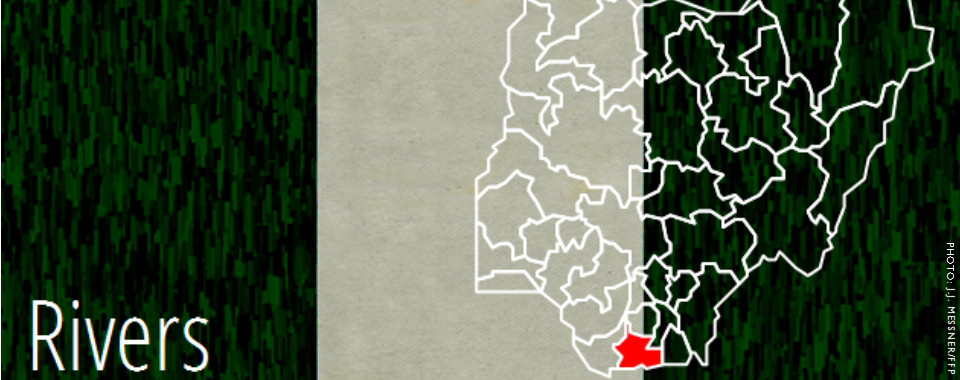BY NATE HAKEN AND PATRICIA TAFT*
Since May 2013, political tensions were high in Rivers State after the disputed Nigerian Governor’s Forum election. Formerly a member of the PDP, Governor Rotimi Amaechi, who is from Ikwerre (Rivers East Senatorial District), switched affiliation to the APC in November 2013. Despite the zoning formula, which would have given the PDP gubernatorial candidacy to an aspirant from Rivers South-East, Nyesom Wike (Rivers East) won the PDP primaries, upsetting the rotation and raising ethnic sentiments across the state, including the Ogoni axis. In a surprise move, the powerful former militant group, Movement for the Emancipation of the Niger Delta (MEND) apparently made a statement endorsing the APC candidate in the presidential election after claiming dissatisfaction with the current president and the PDP. In the run-up to the 2015 elections, cult groups and ex-militants lined up behind the two major parties and exerted influence through intimidation and violence. Ultimately, Wike (PDP) won the election to succeed Amaechi (APC) as governor.
This Conflict Bulletin provides a brief snapshot of the trends and patterns of conflict risk factors at the State and LGA levels, drawing on the data available on the P4P Digital Platform for Multi-Stakeholder Engagement (www.p4p-nigerdelta.org). It represents a compilation of the data from the sources listed below, not necessarily the opinions of FFP or any other organization that collaborated on the production of this bulletin.
The summaries draw on data collected by ACLED, FFP’s UNLocK, the Council on Foreign Relations’ NST, WANEP Nigeria, CSS/ETH Zurich, NEEWS2015, and Nigeria Watch integrated on the P4P platform. They also draw on data and information from “Violence in Nigeria: Patterns and Trends,” by Patricia Taft and Nate Haken (Springer Press, April 2015).
*Hannah Blyth also contributed to this report.
